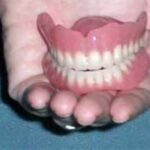Thinking back to your childhood, you can probably recall a bad habit that you used to have. Possibly, you used to pick your nose or something like that. A lot of children pick up a bad habit or two during their childhood, and parents should do their best to correct these habits before their child grows up. Fortunately, most bad habits in children simply go away as a child starts to grow up, but this isn’t always the case. Here’s a quick list of a few of the most common habits children develop at a young age:
* Grinding Teeth
* Issues with Sugar
* Nail Biting
* Nose Picking
Without a doubt, there are hundreds of other possible habits that children can exhibit. You should do whatever you can to correct these habits if your child doesn’t stop the habit on their own. So then, let’s take a look at how you can fix these bad habits in your children.
Identifying A Problem Habit
The most obvious habits are pretty easy to target. In reality, parents should be on the lookout for habits in their children that cause problems elsewhere. A gross habit might be appalling to a parent, but it might not affect the child at all. You shouldn’t let your child engage in habits that are affecting their health in some way or another though. For instance, a child that has a habit of always eating sugar is only hurting their own health and teeth – that should be stopped immediately. There are plenty of other habits that can adversely affect a child though, so parents have to know how to identify them.
For starters, any habit that blatantly and obviously is affecting your child in a negative way needs to be taken care of right away. Anything done in an excessive nature is a problem to some degree, so don’t ignore your child’s habits. An innocent thumb sucking can turn into some embarrassment for both you and your child, especially if they are older than seven years-old. Also, excessive nose picking can turn into increasing episodes of nosebleeds. If you notice any negative changes in your child’s behavior, then a poor habit could be the cause. Some children have random habits that might seem harmless but are the exact opposite.
The problem, though, isn’t identifying the problem habit. In the end, the most difficult thing you’ll have to do is deal with said habit. As a parent, you should readily be concerned with poor behaviors in your child, but you should become even more concerned when that habit affects your child in a negative way. We’ll move on to dealing with said issues so that you and your child can be problem-free.
Correcting Bad Habits
Luckily, bad habits in children can be corrected over time. Some children won’t let go of their habits at first, but many simply outgrow them in the end. You should always give a little bit of effort toward helping your child out. In the end, most habits are harmless anyways. So then, how exactly do you get rid of bad behaviors in your child? Try some of the following solutions:
Tell your child to stop their poor behavior.
Of course, the most obvious solution to bad repetitive behavior is to tell your child to stop doing such things. It usually won’t work, but some children will listen to their parents for random things. Undoubtedly, explaining the consequences of their problem and talking about why your child engages in the activity will make him or her more likely to stop without much thought. Don’t just wait around and expect your child to know that their activity is – in fact – a negative and bad thing to do.
Reward your child for not engaging in the bad habit.
After you talk to your child, you can strike a deal with them by using some sort of reward system. Just give them a small reward whenever they spend a lot of time not engaging in their bad habit. It might seem similar to a bribe, but it shouldn’t matter as long as your child is healthy and habit-free. Of course, this method doesn’t always work because your child has the ability to turn around and continue doing whatever it is they do. Still, anything that has a chance at correcting a bad habit is worth giving a shot.
Ignore the Behavior.
Some children seem to love doing exactly what their parents tell them not to do. Therefore, you should consider ignoring your child’s habit and letting him or her engage in it at will. If they use their habit as a way to defy your authority, then they’re bound to stop quickly when they realize that you aren’t paying attention to them. You obviously shouldn’t ignore a behavior that is causing real problems with your child, but the minor ones are fine existing. In fact, many children will give up their habits if nobody is paying attention to them.
Use A Little Sensationalism.
Obviously, sensationalism is what newspapers used in the past to draw in more readers. Sensationalism involves reporting upon the goriest, most sexual, or the most glamorous news – even if it’s a stretch of the truth. You can use this same tactic with your child to get rid of his or her bad repetitive behaviors. For example, you can use a picture of someone with a missing nose to describe the effects of too much nose picking. It won’t really be true, but it could scare your child into ending their habit. This tactic can be used with just about any habit, but you can’t scare your child so much that they are traumatized. For this one, you need to use your best judgment to avoid causing your child major distress. Scare them – don’t utterly horrify them.
As you can see, correcting negative habits in young children isn’t necessarily the easiest thing in the world to accomplish. It is a task that can be taken care of by any able parent though. There are plenty of other methods to get a young kid to kick his or her habits, but the previously mentioned ones are the simplest.
Bad Habits Are Usually Outgrown
In the end, you might just have to settle with allowing your child’s behavior to continue – as long as the habit isn’t dangerous to the child’s health. All parents can take solace in the fact that many children grow out of their bad habits over the course of a couple to a few years. On the other hand, some children will kick a habit fairly quickly for no reason at all. Don’t fret too much if your child picks their nose, bites their nails, or does something else unpleasant because it is highly unlikely that he or she will continue such a habit into their teen years. Many children kick their unpleasant habits by the time they turn 8 or 9 years-old. In reality, you don’t have to force your child to stop doing some repeated behavior, but you shouldn’t promote or support it either.
Miscellaneous Information
Bad Habits in Children
pediatrics.about.com/od/badhabits/Bad_Habits.htm
Bad Behaviors in Children and Some Explanations
www.med.umich.edu/yourchild/topics/badhabit.htm
* Many of these behaviors are analyzed for young toddlers, but the information applies to children of any age.*




